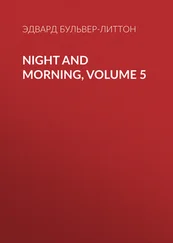Эдвард Бульвер-Литтон - What Will He Do with It? — Volume 06
Здесь есть возможность читать онлайн «Эдвард Бульвер-Литтон - What Will He Do with It? — Volume 06» — ознакомительный отрывок электронной книги совершенно бесплатно, а после прочтения отрывка купить полную версию. В некоторых случаях можно слушать аудио, скачать через торрент в формате fb2 и присутствует краткое содержание. Жанр: foreign_prose, literature_19, Европейская старинная литература, foreign_antique, на английском языке. Описание произведения, (предисловие) а так же отзывы посетителей доступны на портале библиотеки ЛибКат.
- Название:What Will He Do with It? — Volume 06
- Автор:
- Жанр:
- Год:неизвестен
- ISBN:нет данных
- Рейтинг книги:5 / 5. Голосов: 1
-
Избранное:Добавить в избранное
- Отзывы:
-
Ваша оценка:
- 100
- 1
- 2
- 3
- 4
- 5
What Will He Do with It? — Volume 06: краткое содержание, описание и аннотация
Предлагаем к чтению аннотацию, описание, краткое содержание или предисловие (зависит от того, что написал сам автор книги «What Will He Do with It? — Volume 06»). Если вы не нашли необходимую информацию о книге — напишите в комментариях, мы постараемся отыскать её.
What Will He Do with It? — Volume 06 — читать онлайн ознакомительный отрывок
Ниже представлен текст книги, разбитый по страницам. Система сохранения места последней прочитанной страницы, позволяет с удобством читать онлайн бесплатно книгу «What Will He Do with It? — Volume 06», без необходимости каждый раз заново искать на чём Вы остановились. Поставьте закладку, и сможете в любой момент перейти на страницу, на которой закончили чтение.
Интервал:
Закладка:
Vance, more and more surprised, looked hard at Lionel without speaking. Five years of that critical age, from seventeen to twenty-two, spent in the great capital of Europe; kept from its more dangerous vices partly by a proud sense of personal dignity, partly by a temperament which, regarding love as an ideal for all tender and sublime emotion, recoiled from low profligacy as being to love what the Yahoo of the mocking satirist was to man; absorbed much by the brooding ambition that takes youth out of the frivolous present into the serious future, and seeking companionship, not with contemporary idlers, but with the highest and maturest intellects that the free commonwealth of good society brought within his reach: five years so spent had developed a boy, nursing noble dreams, into a man fit for noble action,—retaining freshest youth in its enthusiasm, its elevation of sentiment, its daring, its energy, and divine credulity in its own unexhausted resources; but borrowing from maturity compactness and solidity of idea,—the link between speculation and practice, the power to impress on others a sense of the superiority which has been self-elaborated by unconscious culture.
"So!" said Vance, after a prolonged pause, "I don't know whether I have resolve or genius; but certainly if I have made my way to some small reputation, patience, hope, and concentration of purpose must have the credit of it; and prudence, too, which you have forgotten to name, and certainly don't evince as a charioteer. I hope, my dear fellow, you are not extravagant? No doubt, eh?—why do you laugh?"
"The question is so like you, Frank,—thrifty as ever."
"Do you think I could have painted with a calm mind if I knew that at my door there was a dun whom I could not pay? Art needs serenity; and if an artist begin his career with as few shirts to his back as I had, he must place economy amongst the rules of perspective."
Lionel laughed again, and made some comments on economy which were certainly, if smart, rather flippant, and tended not only to lower the favourable estimate of his intellectuai improvement which Vance had just formed, but seriously disquieted the kindly artist. Vance knew the world,—knew the peculiar temptations to which a young man in Lionel's position would be exposed,—knew that contempt for economy belongs to that school of Peripatetics which reserves its last lessons for finished disciples in the sacred walks of the Queen's Bench.
However, that was no auspicious moment for didactic warnings.
"Here we are!" cried Lionel,—"Putney Bridge."
They reached the little inn by the river-side, and while dinner was getting ready they hired a boat. Vance took the oars.
VANCE.—"Not so pretty here as by those green quiet banks along which we glided, at moonlight, five years ago."
LIONEL.—"Ah, no! And that innocent, charming child, whose portrait you took,—you have never heard of her since?"
VANCE.—"Never! How should I? Have you?"
LIONEL.—"Only what Darrell repeated to me. His lawyer had ascertained that she and her grandfather had gone to America. Darrell gently implied that, from what he learned of them, they scarcely merited the interest I felt in their fate. But we were not deceived, were we, Vance?"
VANCE—"No; the little girl—what was her name? Sukey? Sally? Sophy, true—Sophy had something about her extremely prepossessing, besides her pretty face; and, in spite of that horrid cotton print, I shall never forget it."
LIONEL—"Her face! Nor I. I see it still before me!"
VANCE—"Her cotton print! I see it still before me! But I must not be ungrateful. Would you believe it,—that little portrait, which cost me three pounds, has made, I don't say my fortune, but my fashion?"
LIONEL—"How! You had the heart to sell it?"
VANCE.—"No; I kept it as a study for young female heads—'with variations,' as they say in music. It was by my female heads that I became the fashion; every order I have contains the condition, 'But be sure, one of your sweet female heads, Mr. Vance.' My female heads are as necessary to my canvas as a white horse to Wouvermans'. Well, that child, who cost me three pounds, is the original of them all. Commencing as a Titania, she has been in turns a 'Psyche,' a 'Beatrice-Cenci,' a 'Minna,' 'A Portrait of a Nobleman's Daughter,' 'Burns's Mary in Heaven,' 'The Young Gleaner,' and 'Sabrina Fair,' in Milton's 'Comus.' I have led that child through all history, sacred and profane. I have painted her in all costumes (her own cotton print excepted). My female heads are my glory; even the 'Times' critic allows that! 'Mr. Vance, there, is inimitable! a type of childlike grace peculiarly his own,' etc. I'll lend you the article."
LIONEL.—"And shall we never again see the original darling Sophy? You will laugh, Vance, but I have been heartproof against all young ladies. If ever I marry, my wife must have Sophy's eyes! In America!"
VANCE.—"Let us hope by this time happily married to a Yankee! Yankees marry girls in their teens, and don't ask for dowries. Married to a Yankee! not a doubt of it! a Yankee who thaws, whittles, and keeps a 'store'!"
LIONEL.—"Monster! Hold your tongue. /A propos/ of marriage, why are you still single?"
VANCE.—"Because I have no wish to be doubled up! Moreover, man is like a napkin, the more neatly the housewife doubles him, the more carefully she lays him on the shelf. Neither can a man once doubled know how often he may be doubled. Not only his wife folds him in two, but every child quarters him into a new double, till what was a wide and handsome substance, large enough for anything in reason, dwindles into a pitiful square that will not cover one platter,—all puckers and creases, smaller and smaller with every double, with every double a new crease. Then, my friend, comes the washing-bill! and, besides all the hurts one receives in the mangle, consider the hourly wear and tear of the linen-press! In short, Shakspeare vindicates the single life, and depicts the double in the famous line, which is no doubt intended to be allegorical of marriage,
"'Double, double, toil and trouble.'
Besides, no single man can be fairly called poor. What double man can with certainty be called rich? A single man can lodge in a garret, and dine on a herring: nobody knows; nobody cares. Let him marry, and he invites the world to witness where he lodges, and how he dines. The first necessary a wife demands is the most ruinous, the most indefinite superfluity; it is Gentility according to what her neighbours call genteel. Gentility commences with the honeymoon; it is its shadow, and lengthens as the moon declines. When the honey is all gone, your bride says, 'We can have our tea without sugar when quite alone, love; but, in case Gentility drop in, here's a bill for silver sugar-tongs!' That's why I'm single."
"Economy again, Vance."
"Prudence,—dignity," answered Vance, seriously; and sinking into a revery that seemed gloomy, he shot back to shore.
CHAPTER II
Mr. Vance explains how he came to grind colours and save half-pence.
—A sudden announcement.
The meal was over; the table had been spread by a window that looked upon the river. The moon was up: the young men asked for no other lights; conversation between them—often shifting, often pausing—had gradually become grave, as it usually does with two companions in youth; while yet long vistas in the Future stretch before them deep in shadow, and they fall into confiding talk on what they wish,—what they fear; making visionary maps in that limitless Obscure.
"There is so much power in faith," said Lionel, "even when faith is applied but to things human and earthly, that let a man be but firmly persuaded that he is born to do, some day, what at the moment seems impossible, and it is fifty to one but what he does it before he dies. Surely, when you were a child at school, you felt convinced that there was something in your fate distinct from that of the other boys, whom the master might call quite as clever,—felt that faith in yourself which made you sure that you would be one day what you are."
Читать дальшеИнтервал:
Закладка:
Похожие книги на «What Will He Do with It? — Volume 06»
Представляем Вашему вниманию похожие книги на «What Will He Do with It? — Volume 06» списком для выбора. Мы отобрали схожую по названию и смыслу литературу в надежде предоставить читателям больше вариантов отыскать новые, интересные, ещё непрочитанные произведения.
Обсуждение, отзывы о книге «What Will He Do with It? — Volume 06» и просто собственные мнения читателей. Оставьте ваши комментарии, напишите, что Вы думаете о произведении, его смысле или главных героях. Укажите что конкретно понравилось, а что нет, и почему Вы так считаете.












